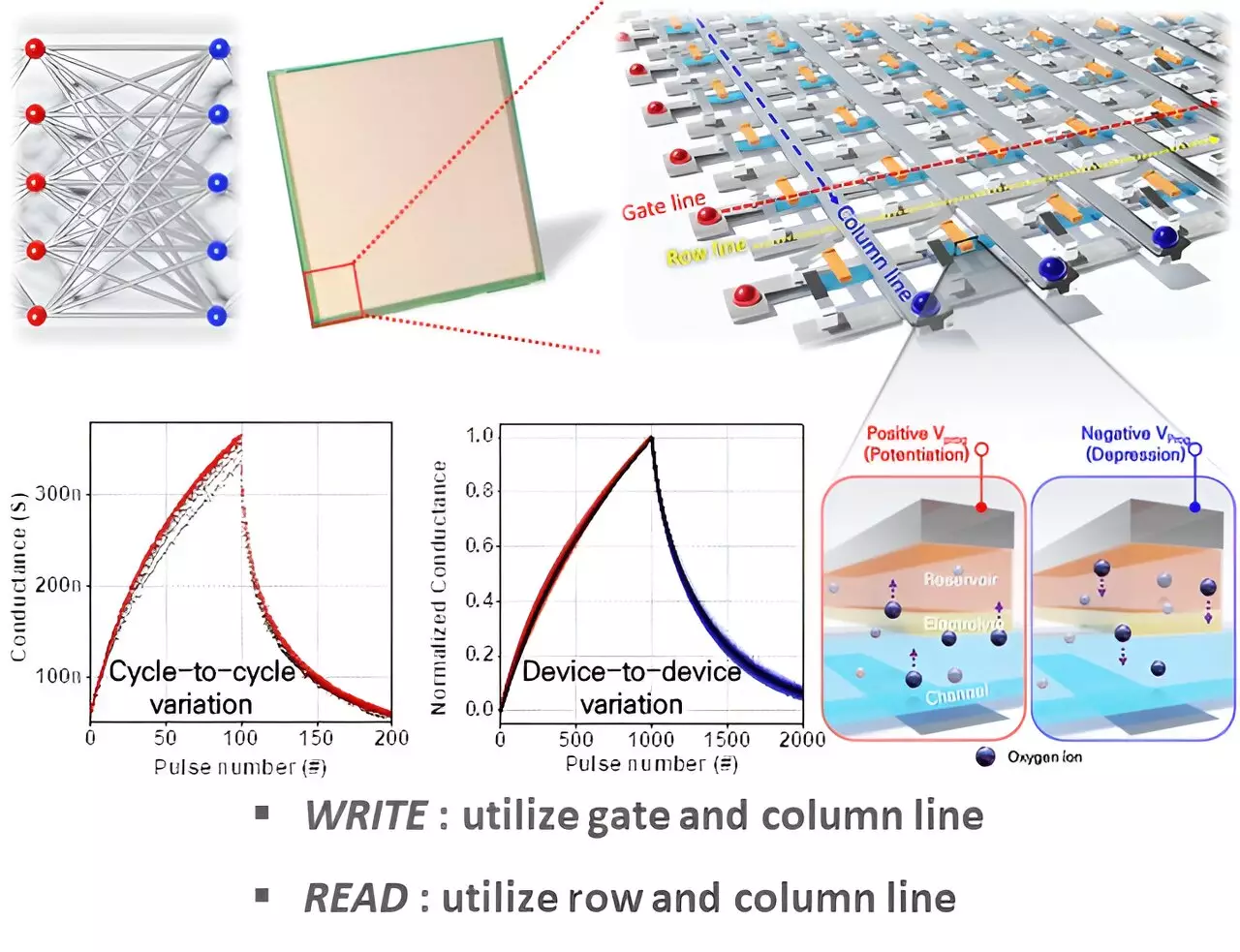Analog hardware is revolutionizing the field of artificial intelligence (AI) with its potential to maximize computational performance. A recent study published in Science Advances showcases the groundbreaking work of a research team in utilizing ECRAM devices for AI computation, highlighting the path towards commercialization.
The rapid progress of AI technology, especially in areas like generative AI, has stretched the limits of traditional digital hardware such as CPUs, GPUs, and ASICs. This has led to a growing need for analog hardware specialized for AI computation to meet the increasing demands for scalability and efficiency.
Analog hardware functions by adjusting semiconductor resistance based on external voltage or current, utilizing a cross-point array structure to process AI computations in parallel. While analog hardware offers advantages for specific computational tasks and continuous data processing, it still faces challenges in meeting the diverse requirements of computational learning and inference.
The research team, led by Professor Seyoung Kim, focused on Electrochemical Random Access Memory (ECRAM) devices to address the limitations of existing analog hardware memory devices. ECRAM devices manage electrical conductivity through ion movement and concentration, featuring a three-terminal structure for reading and writing data with lower power consumption.
Through their study, the team successfully fabricated ECRAM devices in a 64×64 array, demonstrating excellent electrical and switching characteristics, high yield, and uniformity. By applying the Tiki-Taka algorithm, an analog-based learning algorithm, to this hardware, they were able to maximize the accuracy of AI neural network training computations.
The research not only showcases the impact of hardware training on AI learning but also paves the way for commercializing the technology. By demonstrating the scalability of ECRAM devices beyond the previously reported 10×10 array, the researchers have opened up new possibilities for implementing analog hardware in AI applications.
The advancements in analog hardware, particularly with ECRAM devices, represent a significant step towards enhancing the computational performance of artificial intelligence. As researchers continue to push the boundaries of analog technology, the future of AI computation looks promising with the potential for improved scalability, efficiency, and commercialization.


Leave a Reply